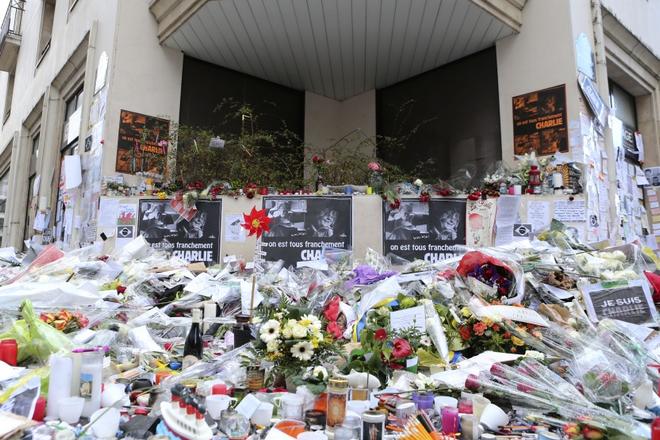Though it is not probable that Slovakia will become target of the similar attack as occurred in France, the country adopts measures to protect people from terrorism, the Interior Ministry says. The security forces also warn against the possibility of the so-called lone wolves attacks.
“If we have the communities in France, Germany and Scandinavia who do not feel to be part of the society, in which they feel to be on the brink, they do not have the same opportunities and the result is that they get radicalised and feel the need to express with such terrorist acts, then there is something wrong with this project,” Lajčák told the public-service Radio and Television of Slovakia (RTVS) on January 10.
The minister added that the whole concept was naïve, as it did not integrate people into the society, as was the immigration policy of some countries.
“It is necessary to be more careful about whom you let enter your territory,” Lajčák said. According to him, the roots for current state are rather economic and social, which results in “frustration of individuals who are then easy to be manipulated”.
Also František Šebej of the Most-Híd party who chairs the parliamentary foreign affairs committee said that the immigration policy of some European countries, especially in Scandinavia, was crazy.
“If they want to survive as a culture, as a civilisation, they cannot try to solve the problems of Africa with moving it to Scandinavia,” Šebej told RTVS, adding that Africans should get help in the places where they live.
Limiting free movement questioned
Following the attacks in Paris, Spanish Interior Minister Jorge Fernández Díaz suggested that the Schengen Treaty should be modified to allow border controls to be restored to limit the movements of Islamic fighters returning to Europe from the Middle East, the AFP newswire wrote.
“We are going to back border controls and it is possible that as a consequence it will be necessary to modify the Schengen Treaty,” he said.
Slovakia’s Interior Ministry however says it does not register any initiative of EU bodies to revise the Schengen Agreement. The only changes planned in the area are the modifications of functionalities of the Schengen Information System which should allow more prompt mutual communication between security forces within the Schengen Area and more effective adoption of necessary measures. The system allows the monitoring of people committing crimes, including terrorism, and taking actions against them, Marta Fabianová of the Interior Ministry press department told The Slovak Spectator.
She added that the ministry can imagine possible limits to borders only during special events, like a sporting event happening in Austria which was considered high risk.
“From longer point of view it [the border controls] would de facto mean the end of Schengen and free movement of people,” Fabianová said. “We do not think this would solve the problem.”
When asked whether the attacks in Paris can result in losing some freedoms or comfort, Lajčák said that this already happened after the 9/11 attacks.
“The question now is whether the situation will get worse,” Lajčák told RTVS, warning of the anti-Islamic counterattacks.
Fighting the terrorism
Slovakia does not belong to countries threatened with terrorist attack similar to one in Paris, Lajčák told RTVS. First, there is only small and not militant Islamic community living in the country. Second, Slovakia is not perceived as a symbol of the west, he explained.
According to Interior Minister Robert Kaliňák, Slovakia’s strict asylum policy helps to protect Slovakia from terrorism.
“We are often criticised for being stricter than we should, but I think it bears its fruits,” Kaliňák said on January 9, as quoted by the TASR newswire.
He explained that the attacks change nothing in the style of work of Slovak security forces which regularly assess the security risks and based on them adopt the necessary measures, as reported by TASR.
Neither the ministry, nor the Slovak Information Service (SIS) intelligence agency however publishes the specific measures.
The Interior Ministry says it currently has no information about the immediate security risk to Slovakia or the increased possibility of terrorist attacks in the country. It however cannot exclude the possibility that similar attacks may occur in Slovakia, especially because of the movement of the so-called lone wolves.
“Their actions and reactions are unpredictable, therefore they pose serious security risk to security, democracy and stability of every country,” Fabianová said.
Except for the lone wolves, SIS warned in its report also against the radicalised fanatics and Jihadist returnees. It also recently informed that several people who recently left Slovakia might have joined the radical movements in these areas, SIS spokesman Branislav Zvara told The Slovak Spectator. He however said this number is one-digit and visibly under the EU average.
When it comes to the Muslim community in Slovakia, SIS considers it moderate, without radical expressions, Zvara said.



 France was stricken with terrorist attacks in early January. (source: AP/TASR)
France was stricken with terrorist attacks in early January. (source: AP/TASR)